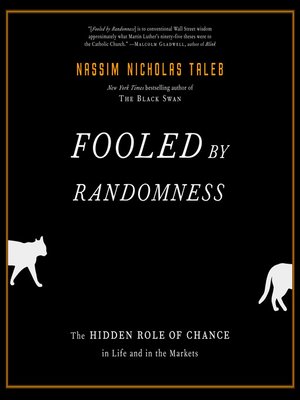

However, they will fail to make an allowance for the role of luck in their performance. But Nassim reminds us that “a large section of businessmen with outstanding track records will be no better than randomly thrown darts. When asked about their investment strategies they’ll surely rant and rave about their superior insights, analytical abilities, and determination. You see, someone must be part of the – in this instance – top ~3%. “We have now, simply in a fair game, 313 managers who made money for five years in a row. In year 4, we’re left with 625 managers before finally reaching 313 in year 5. A year later, 2,500 managers with $40,000 each remain. At the beginning of year two, we’re down to 5,000 managers with $20,000 each. There’s thus a 50% probability he/she will succeed.

If it comes out heads, she loses her $10,000 tails, she wins $10,000. Each manager’s success for the year is determined by a coin toss. He goes on to ask the reader to imagine a population of 10,000 investment managers, each of whom starts out with $10,000. He substantiates that claim by saying that probabilistically someone has to come out on top. The truth, however, is that they’re most likely fooled by randomness, or “lucky fools” to quote Nassim. portfolio managers, will go to great lengths to outline their unique secrets that paved their way to financial riches. In the eyes of these high net worth individuals who have succeeded, the answer is clear: yes. People who have been successful in their fields, i.e. “Can we judge the success of people by their raw performance and their personal wealth?”, Nassim asks. Let’s explore!Īre you a skillful investor, or a lucky fool? This theme is explored via theories, calculations, narratives and common sense.


Namely, how we mistake skill from luck in matters of success and failures. The author of The Black Swan , Nassim Taleb, has written a book on randomness, chance, and luck.


 0 kommentar(er)
0 kommentar(er)
